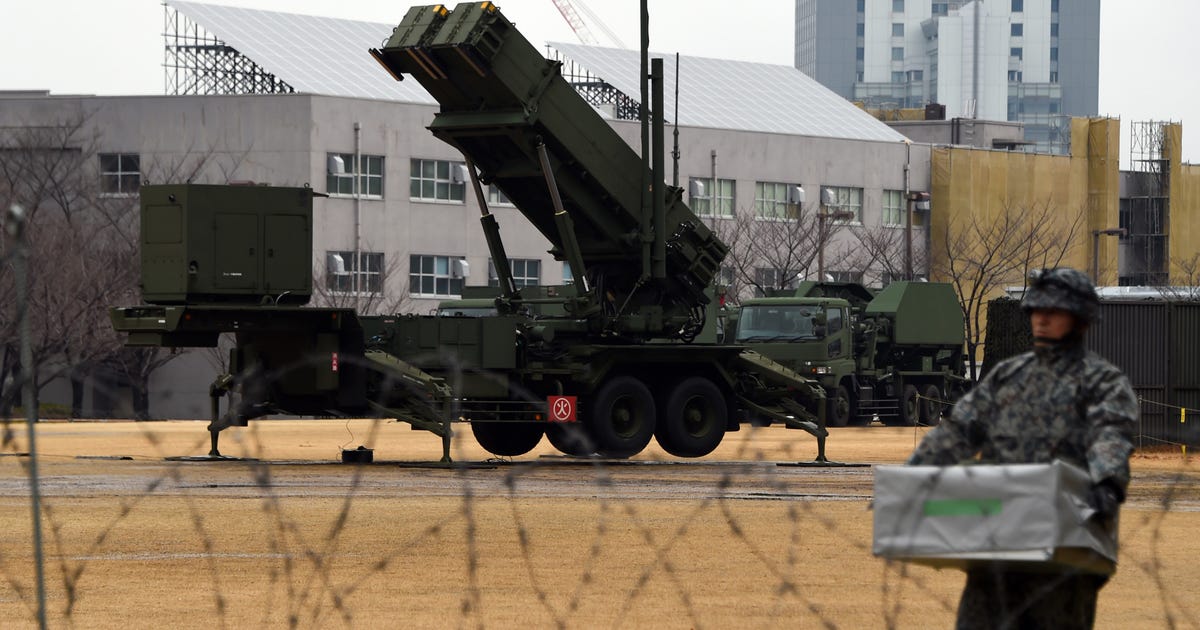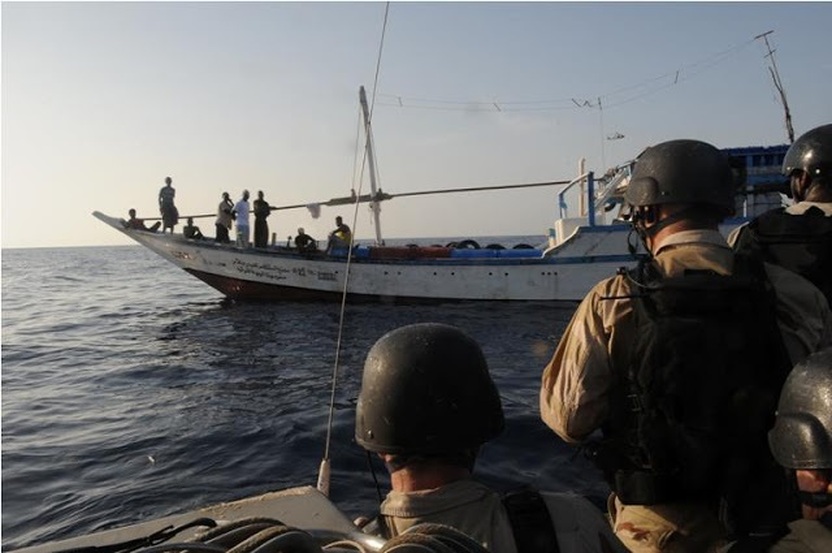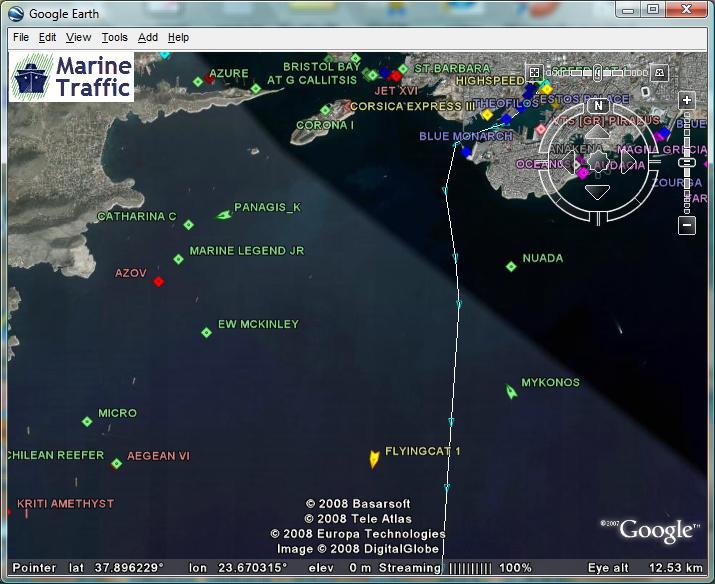There are many worries about building military actions by North Korea such that deployments of U.S. military assets along with that of Japan, S. Korea and other nations in the region are preparing for various conditions due to continued threats by the DPRK.
CNN
There is a standing sanction program against North Korea, but they are not holding due to Africa.
JOHANNESBURG (AP) — North Korean weapons barred by U.N. sanctions ended up in the hands of U.N. peacekeepers in Africa, a confidential report says. That incident and others in more than a half-dozen African nations show how North Korea, despite facing its toughest sanctions in decades, continues to avoid them on the world’s most impoverished continent with few repercussions.
The annual report by a U.N. panel of experts on North Korea, obtained by The Associated Press, illustrates how Pyongyang evades sanctions imposed for its nuclear and ballistic missile programs to cooperate “on a large scale,” including military training and construction, in countries from Angola to Uganda.
Among the findings was the “largest seizure of ammunition in the history of sanctions” against North Korea, with 30,000 rocket-propelled grenades found hidden under iron ore that was destined for Egypt in a cargo vessel heading toward the Suez Canal. The intended destination of the North Korean-made grenades, seized in August, was not clear.
A month before that, the report says, a U.N. member state seized an air shipment destined for a company in Eritrea containing military radio communications items. It was the second time military-related items had been caught being exported from North Korea to Eritrea “and confirms ongoing arms-related cooperation between the two countries.” Eritrea is also under U.N. sanctions for supporting armed groups in the Horn of Africa.
***
Experts point to China as the father and manager of North Korea and there is real truth to that, yet the collaborations go far beyond China, to include Iran, Syria and Russia and in some cases Egypt. Nearly all of the North Korea country’s communications and Internet traffic is routed through China. Firms that monitor that traffic say it is comparable to only about 1,000 high-speed homes in the United States.
North Korea has intermediate-range ballistic missiles as well. North Korea has tested nuclear weapons on three occasions; Iran and Syria’s nuclear programs have raised suspicions that those countries are pursuing nuclear weapons. However, Iran has, according to the IC, halted its nuclear weapons program, and Syria does not appear to have an active nuclear weapons program.
Congress has held numerous hearings regarding these countries’ nuclear and missile programs. It has also passed legislation providing for sanctions on countries whose entities assist Iran, North Korea, and Syria to obtain weapons of mass destruction (WMD) and missile delivery systems. For example, the Iran, North Korea and Syria Nonproliferation Act (INKSNA, P.L. 106-178) imposes penalties on countries whose companies’ exports. See report here.
***
Secretary of State Rex Tillerson will warn China’s leaders that the United States is prepared to step up missile defenses and pressure on Chinese financial institutions if they fail to use their influence to restrain North Korea’s nuclear and missile programs, according to several officials involved in planning his first mission to Asia.
Reinforcing military ties, Gen. Joseph F. Dunford Jr., the chairman of the Joint Chiefs of Staff, conducted a 30-minute phone call on Tuesday with his South Korean counterpart, Gen. Lee Sun-jin. A Pentagon statement said the generals discussed the possibility that North Korea could carry out “provocative actions” during the joint American and South Korean exercises now underway, or in April when North Korean authorities commemorate the birthday of Kim Il-sung, the founder and first leader of the country.
Daniel L. Glaser, a former Treasury official who constructed many of the sanctions, and now a principal at the Financial Integrity Network, said in an interview that the largest Chinese banks often shun dealings with North Korea and that some of the smaller ones have little exposure to the American banking system. More here from the NYT’s.
Trump administration officials have signaled there will be even greater financial pressure placed on Beijing if it doesn’t cut off North Korea, a step that risks Chinese retaliation. “We are putting the world on notice: The games are over,” Commerce Secretary Wilbur Ross said while announcing the sanctions on ZTE last week. [….]
U.S. officials said Mr. Tillerson would be discussing North Korea at all his stops in Asia, including the issue of “secondary” sanctions against non-North Korean companies that have been aiding Pyongyang. “All of the existing tools that we have to try to bring pressure on North Korea are on the table, and we’ll be looking to try to see what the most effective combination is,” said a senior U.S. official briefed on the Asia trip.
Republican senators wrote Treasury Secretary Steven Mnuchin last month and called for an investigation into the Bank of China and other Chinese firms for their alleged roles in helping North Korea. [Wall Street Journal, Jay Solomon; link to senator’s letter here]
***
Nuclear Proliferation
Kumsan Trading. Member states are supposed to freeze the assets of, and expel the representatives of, companies involved in North Korean nuclear, missile, and other WMD proliferation. According to the Panel, the Korea Kumsan Trading Corporation is a front for North Korea’s General Bureau of Atomic Energy and helps it procure materials and fund its operations. Kumsan advertises itself online openly as dealing in sanctioned products, including vanadium and precious metals, with locations in both Moscow and Dandong. (Paras. 18-20.)
Korea Mining Development Trading Corp. (KOMID) is North Korea’s main arms dealer. It was designated in 2009 for WMD proliferation, but probably earns most of its revenue through violations of an embargo on conventional arms sales, by selling to governments in Africa and the Middle East. KOMID operates through multiple front companies that do business more-or-less openly in China. China is required to expel the representatives of these companies, but it almost never does. When one of them is exposed, it may revoke a business license or registration, but the operative goes right back into business under a new name at a new address. The Panel also found that at least nine KOMD representatives traveled through China in 2016, despite a requirement that member states deny them entry. (Table 8, Page 68.)
One of KOMID’s fronts is Namchongang Trading, which was designated by the U.N. in 2009 for procuring nuclear-related items. It operates openly in Beijing and Dandong, China, through several Chinese commercial websites. (Para. 156.) Namchongang has also operated as (or in cahoots with) Taeryonggang Trading, Namhung Trading, and Sobaeksu United Corporation, which operates in Beijing, Yingkou and Dandong. The EU designated Sobaeksu in 2010 for “the research and acquisition of sensitive products and equipment.” The Panel suspects that this entire network is involved with KOMID. (Paras. 156-59.) KOMID also does business through a front company called Beijing New Technology. (Para. 163.)
Another KOMID front, Korea Heungjin Trading, which was designated in 2012, for nuclear, missile, and other WMD proliferation, also operates openly in Dandong and Dalian. A North Korean diplomat posted at the embassy in Beijing serves as its director. (Para. 187-89.)
Green Pine Associated was designated by the U.N. in 2012 for its involvement in North Korea’s nuclear, missile, and other WMD programs. It’s still doing business openly in both Beijing, Shenyang, and Hong Kong as Green Pine, Natural Resources Development Investment Corporation, King Helong International Trading, Korea Unhasu Trading Company, and Saeng Pil Trading Corporation. (Paras. 166-83.) Green Pine is the company behind the attempted sale of the lithium from … guess where:
24. The Panel investigated the 2016 attempted online sale of lithium metal by the Democratic People’s Republic of Korea. The enriched lithium-6 isotope, and products or devices containing it, are on the list of prohibited nuclear-related items adopted by the Security Council (see annex 4-4). According to IAEA, lithium-6 is used to produce tritium, an isotope found in boosted nuclear devices. This sales attempt suggests that the Democratic People’s Republic of Korea has access to remaining quantities of the material.
25. Li-6 is advertised for sale by a company of the Democratic People’s Republic of Korea, General Precious Metal, which the European Union has identified as an alias of Green Pine Associated Corporation (Green Pine). Mr. Chol Yun was listed as the contact person of General Precious Metal for sale of the mineral and has an address and phone numbers in Beijing (see annex 4-5). The same name appeared as third secretary of the embassy of the Democratic People’s Republic of Korea in Beijing on an official diplomatic list dated 24 September 2012 (see annex 4-6). The Panel notes a pattern whereby the Democratic People’s Republic of Korea has accredited Green Pine overseas representatives as diplomats. The Panel continues to investigate this diplomat’s involvement in prohibited activities and his possible connection with another prohibited activity (see para. 91).
Korea Ryonha Machinery Joint Venture was designated in 2013 for WMD proliferation, mainly for buying, selling, and manufacturing machine tools used for making both conventional weapons and WMDs. It shows up in POE reports year after year because it continues to operate, and to display its wares at trade shows, in both Russia and China. In 2016, a Chinese company exported several machine tools to North Korea, and the Chinese government was reportedly investigating (!) Ryonha’s involvement. (Para. 196.)
[From the U.N. Panel’s 2014 report]
Training of scientists. The resolutions ban member states from training North Koreans in sensitive technology that could be used for North Korea’s WMD programs. The North Korean universities that train the country’s nuclear and missile scientists have exchange agreements with universities in Russia and China. The Panel asked the Chinese universities to explain, but they never responded. (Para. 135.)
Missile Proliferation
Kwangmyongsong missile parts. Someone, presumably the U.S. Navy, recovered the pieces of a Kwangmyongsong missile North Korea launched in February 2016 and found that it contained “ball bearings and engraved Cyrillic characters … identical to those from the 2012 Unha-3, and a “camera [and] EMI filter” from a “Chinese manufacturer, Beijing East Exhibition High-Tech Technology Co. Ltd.” (Paras. 57-58.) That “someone” also discovered the Pyongyang had imported pressure transmitters from the U.K. and Ireland, via the manufacturer’s distributor in China, via middlemen in China. (Para. 59.) This suggests several layers of violations — China’s failure to expel North Korean representatives of sanctioned entities, to enforce export controls, or to inspect cargo going to North Korea.
Shipment of Scud parts to Egypt. Paragraphs 71-77 of last year’s report discuss a shipment of Scud missile parts to Egypt. Since then, the Panel has determined that the whole scheme was run out of the North Korean embassy in Beijing. (Paras. 88-89.) The shipper was Ryongsong Trading Company, and the seller was Rungrado Trading Company, which you may remember for its human trafficking in Europe. Rungrado was designated by the Treasury Department last year for “the exportation of workers” from North Korea to earn foreign currency for Pyongyang, some of which went to North Korean agencies that were designated for supporting WMD programs. South Korea considers Rungrado to be an alias for Ryongsong. (FN.99.) Although the U.S. Treasury Department routinely designates aliases, it has not designated Ryongsong.
Weapons Trafficking
North Korea is subject to a U.N. embargo on the import, export, sale, or purchase of weapons, including weapons components, technology, services, training, and dual-use items. Since March, China has been required to inspect all cargo “that has originated in the DPRK, or that is destined for the DPRK, or has been brokered or facilitated by the DPRK or its nationals, or by individuals or entities acting on their behalf or at their direction, or entities owned or controlled by them, or by designated individuals or entities, or that is being transported on DPRK flagged aircraft or maritime vessels.” (Para. 18.) Pretty clearly, that isn’t happening.
Syria rocket shipment. You’ve already read my post on this, right? Last August, Egyptian authorities seized a record haul of North Korean weapons, mostly PG-7 antitank rockets, hidden under iron ore aboard the M/V Jie Shun. I guessed that Syria was the destination because of the geography, but it’s possible that the client could have been Hamas or Hezbollah (which have also been Pyongyang’s arms clients).
This transaction also relied heavily on North Korean agents based in China. The bill of lading lists a shipper whose address is a hotel room in Dalian, a city often used by North Korean operatives. (Para. 63.) The holder of the ship’s compliance document was one Fan Mintan. A second man, Zhang Qiao, was its emergency contact, arranged for the ship’s insurance, and registered the ship’s operator in the Marshall islands. (Paras. 65-66.) Zhang is also involved in the coal trade with North Korea (para. 68), and thus played a role in violating UNSCR 2270 and 2321. He is also linked to another suspected North Korean smuggling ship, the M/V Light. A third man, Li Anshan, whom the Panel links to Ocean Maritime Management, a North Korean shipping company designated by the U.N. for arms smuggling, helped arrange for the Jie Shun’s Cambodian registration.
Eritrea radios shipment and Glocom. I previously posted about Glocom, the Reconnaissance General Bureau front company that manufactured sophisticated military radios and was based in Malaysia. Glocom made headlines after it was exposed just after the assassination of Kim Jong-nam. Starting at Paragraph 72 of its report, the Panel described how Glocom shipped radios to Eritrea. According to the Panel, that shipment “originated in China.”
75. The air waybills listed the shipper as Beijing Chengxing Trading Co. Ltd. According to the Chinese business registry, the company is still active, mainly trading in electronics, mining equipment and machinery (see annex 8-3). Mr. Pei Minhao (???) was listed as a legal representative until 26 February 2016 and still owns most shares in the company (see para. 164).
Glocom had North Korean representatives based in both Malaysia and China; had bank accounts, front companies, and procurement agents in both Malaysia and China; used mostly Chinese suppliers; and shipped its components to Beijing or Dandong for assembly (the report didn’t specify where). (Para. 77-84, 164.) Glocom did most of its business in U.S. dollars or euro through a sanctioned bank, Daedong Credit Bank, “to transfer funds to a supply chain of more than 20 companies located primarily on the Chinese mainland; in Hong Kong, China; and in Singapore.” (Paras. 233-25.)
Naval vessel repair & construction. Last year, the Panel reported that Green Pine had refurbished military patrol boats for Angola in violation of the arms embargo. The parts were shipped from China, the Panel has asked China for an explanation, and China still hasn’t given one. (Para. 103.)
North Korean UAV that crashed in South Korea. A Beijing company, Microfly Engineering and Technology, made it. After that, the trail leads to another Chinese company and two middlemen, who either point fingers at one another or deny all involvement. The Panel asked China to investigate, but China hasn’t responded. (Para. 107.) More here to FreeKorea, remarkable work.


 Haftar was protected by and lived in the U.S., becoming a citizen. We dispatched him to Libya to launch an interim government. Now he and Egypt both have turned to Russia for full control and support, Putin has complied, happily. John Kerry, Hillary Clinton and Barack Obama are not responding to calls on line 4. Hah…
Haftar was protected by and lived in the U.S., becoming a citizen. We dispatched him to Libya to launch an interim government. Now he and Egypt both have turned to Russia for full control and support, Putin has complied, happily. John Kerry, Hillary Clinton and Barack Obama are not responding to calls on line 4. Hah… Newsweek
Newsweek




